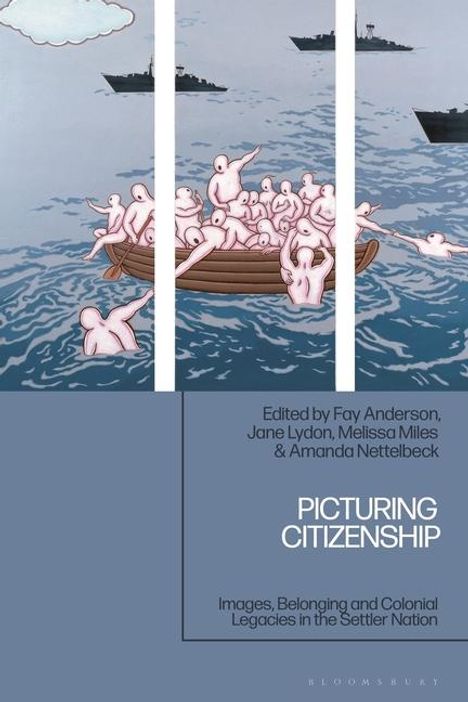Picturing Citizenship, Gebunden
Picturing Citizenship
Buch
- Images, Belonging and Colonial Legacies in the Settler Nation
lieferbar innerhalb 2-3 Wochen
(soweit verfügbar beim Lieferanten)
(soweit verfügbar beim Lieferanten)
Aktueller Preis: EUR 143,96
Versandkosten
(United States of America): EUR 19,90
- Herausgeber:
- Fay Anderson, Jane Lydon, Melissa Miles, Amanda Nettelbeck
- Verlag:
- Bloomsbury Academic, 10/2025
- Einband:
- Gebunden
- Sprache:
- Englisch
- ISBN-13:
- 9781350455887
- Artikelnummer:
- 12107339
- Umfang:
- 264 Seiten
- Gewicht:
- 454 g
- Maße:
- 234 x 156 mm
- Stärke:
- 25 mm
- Erscheinungstermin:
- 16.10.2025
- Hinweis
-
Achtung: Artikel ist nicht in deutscher Sprache!
Klappentext
This book collection considers the unique role of visual culture in defining, contesting and advancing ideas of citizenship and its attendant rights in settler national contexts.

Picturing Citizenship
Aktueller Preis: EUR 143,96

